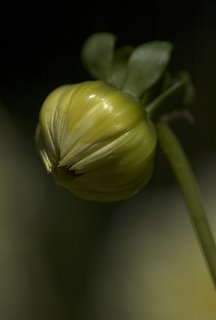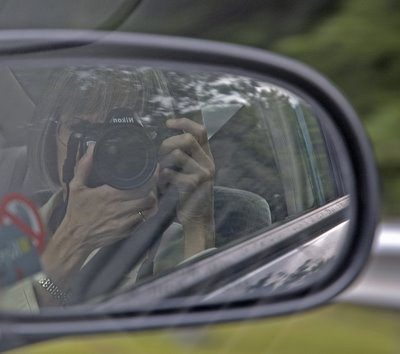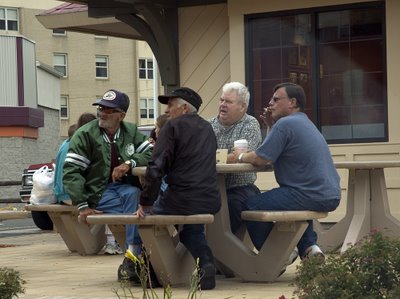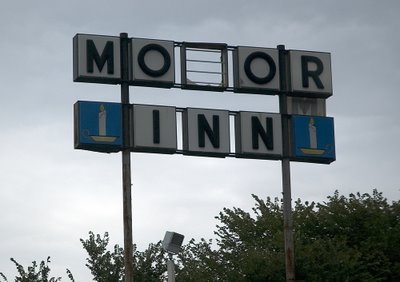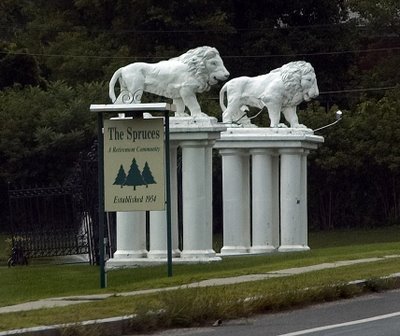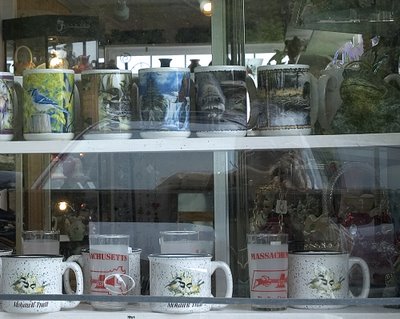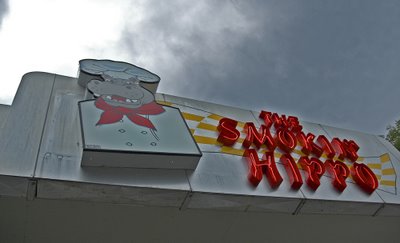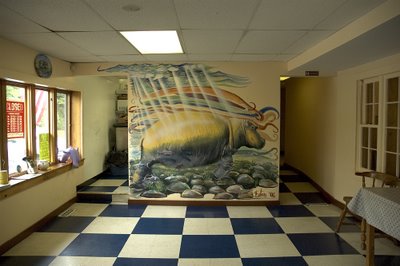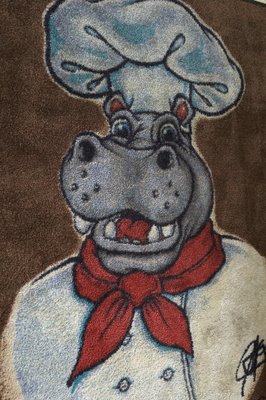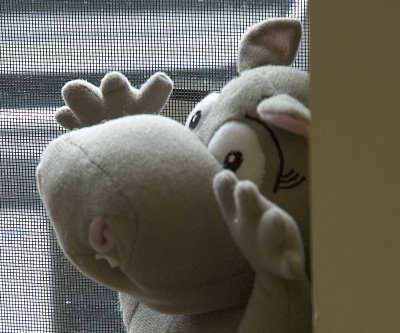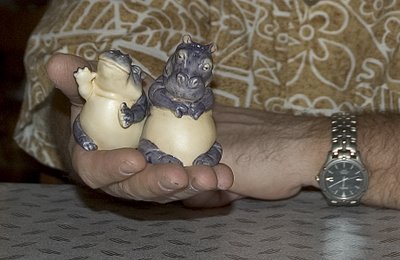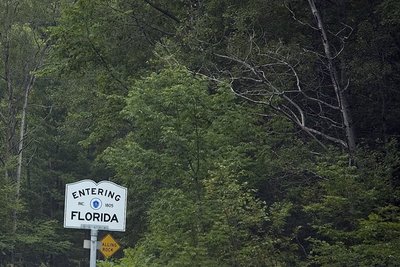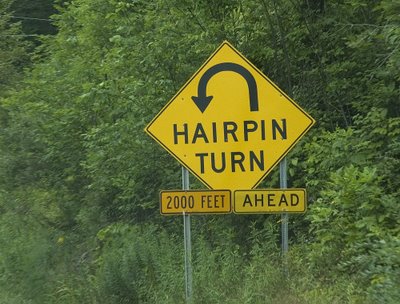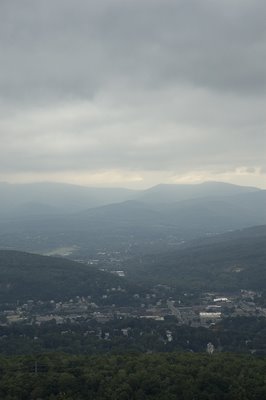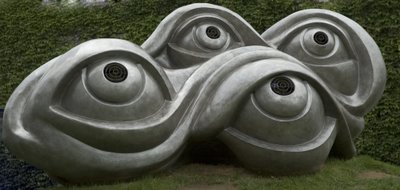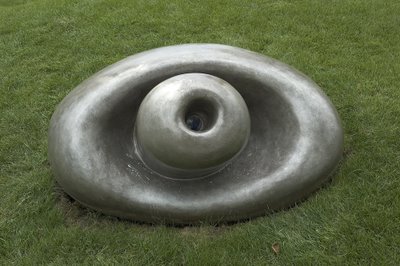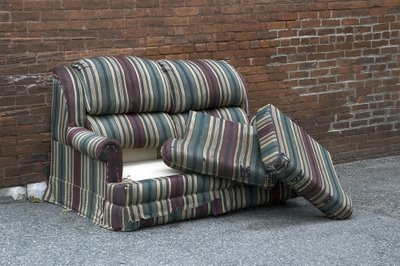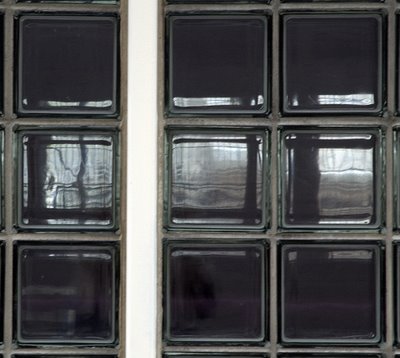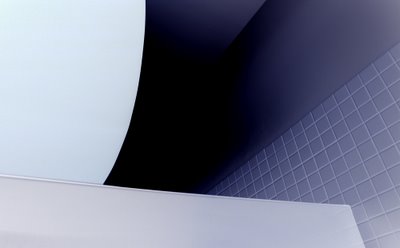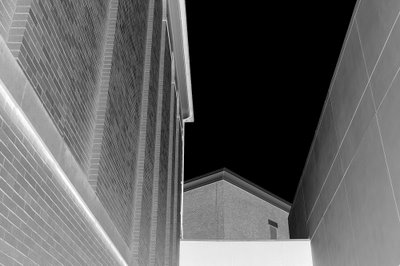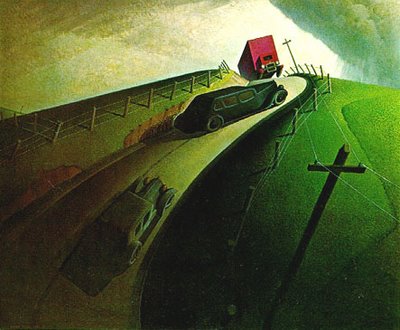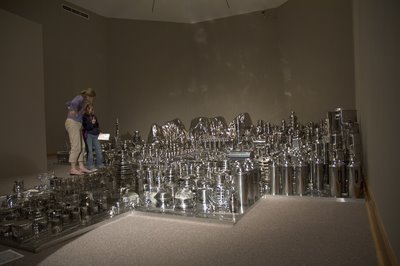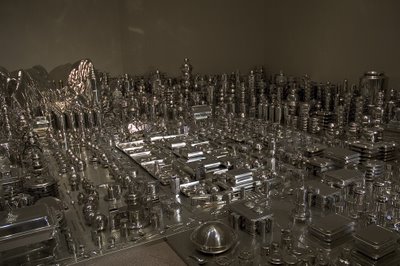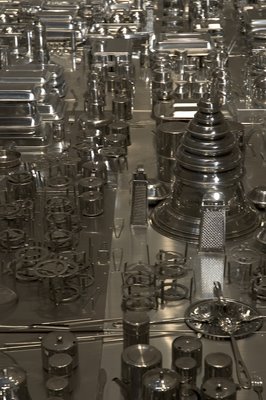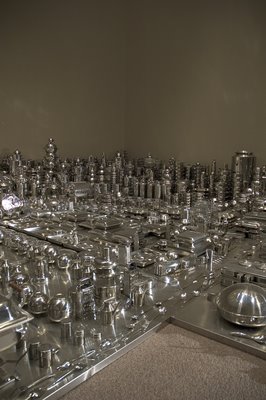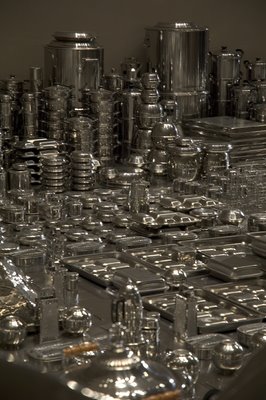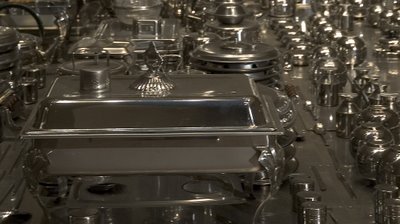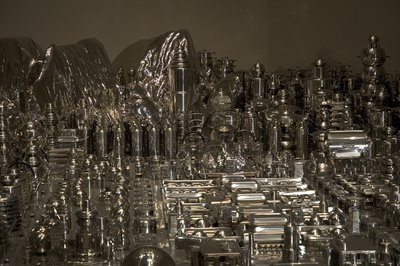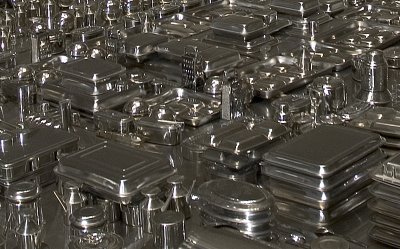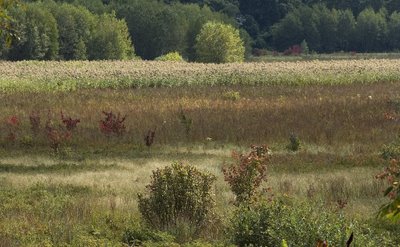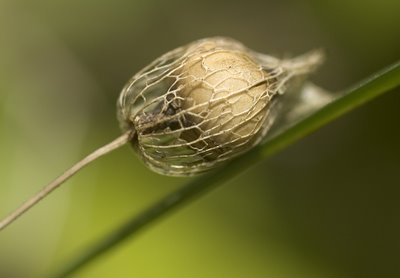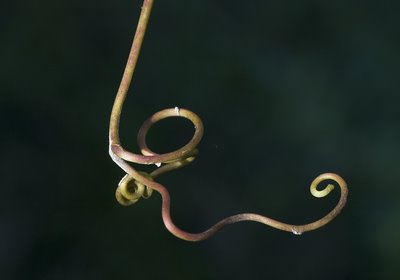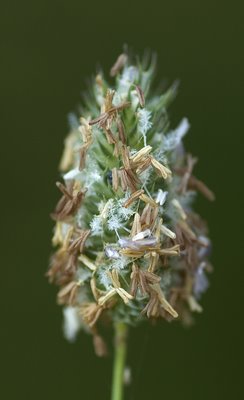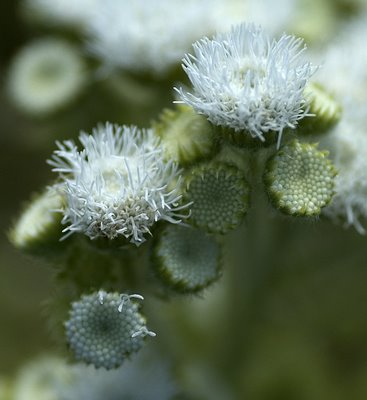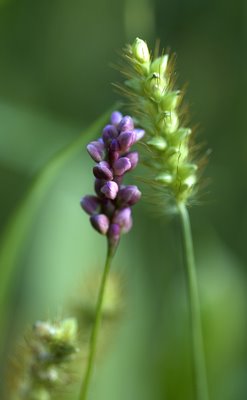
I went to the bird sanctuary on Saturday, early, to avoid the crowds. Long shadows spilled toward the center of the meadow; slanting sun backlit weeds standing motionless in the calm air. It was cold, definately autumnal. I was happy to be nearly alone on the trails. But the day was far from quiet.

The din of football practice arose from the prep school fields beyond Turtle Pond. Rough male voices in loud unison counted one to ten over and over. It sounded like a military drill. I watched a file of shadows pass through the flat brightness beyond the thickets and the chainlink. Suddenly, overhead, low and loud, came the sound of a jet; I tried to spot it through the canopy of trees. I tracked it with my ears. The sound was intense, hellbent, furious. I thought of Thomas Merton in his hermitage listening to military planes, possibly bearing A-bombs, pass overhead --
There is no clock that can measure the speech of this rain that falls all night on the drowned and lonely forest.
Of course at three-thirty A.M. the SAC plane goes over, red light winking low under the clouds, skimming the wooded summits on the south side of the valley, loaded with strong medicine. Very strong. Strong enough to burn up all these woods and stretch our hours of fun into eternities.
-- "Rain and the Rhinoceros"
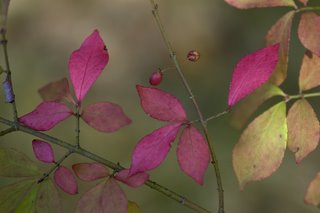
It was true. I'd been on a long quest for something to posit against the world of football games, jet planes, competition, consumption, war and violence. Something perfect as a leaf reddening in the September morning sun. A jogger pounded past on the trail, panting; we smiled at one another. Something perfect as a fellow human enjoying a beautiful Saturday morning in his own way. I was searching for a counterweight to the world's towering edifices of greed, hatred and delusion.

Something like, well, a monastery. A place of light in the world's swamping darkness. A tiny light barely visible through the trees. A light that was carefully nurtured, lovingly protected, and would not go out. Light, like a witness, like an example of what the world could be.
A short poem by GM Hopkins had, of late, been replaying itself in my mind.
I have desired to go
Where springs not fail,
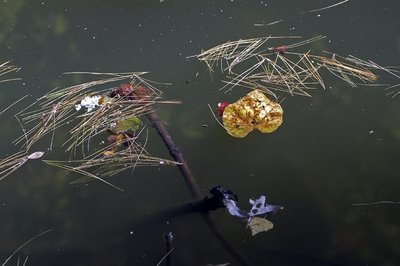
To fields where flies no sharp and sided hail
And a few lilies blow.
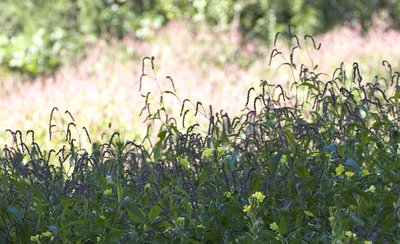
And I have asked to be
Where no storms come,

Where the green swell is in the havens dumb,
And out of the swing of the sea.

The poem is, of course, "Heaven-Haven: A Nun Takes The Veil." Turtle Pond was a excellent haven, even with the Belmont Hill football team rioting in the background. Then why had I, a few weeks back, lived out my own little I have desired to go... I have asked to be in a book-lined, high-ceilinged office in the beautiful stone church down the road ? How had I gone from outside looking in, to stranger in the back pew, to petitioner: I want to join. I want to be confirmed. ? I tried to explain myself to the young priest. My private, cobbled-together practices were no longer sufficing: a bit of zen, a bit of divine office, a nature walk on Sunday morning. What everyone had said, and what I had resisted to my core, was true: I needed a congregation. Fellow travelers. The priest nodded. Even the hermit Merton, she said, had his roots in the community of the monastery.
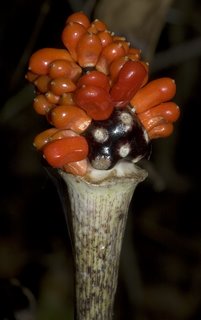
And, after all, Benedict's Rule has this to say about hermits:
The second kind is that of Anchorites, or Hermits, that is, of those who, no longer in the first fervor of their conversion, but taught by long monastic practice and the help of many brethren, have already learned to fight against the devil; and going forth from the rank of their brethren well trained for single combat in the desert, they are able, with the help of God, to cope single-handed without the help of others, against the vices of the flesh and evil thoughts.
This must feel strange to you, the priest continued. Like submitting to authority.
Yes, I replied.
It was exactly that. I felt an enormous relief. As if I'd been forgiven for my great pride and great arrogance.
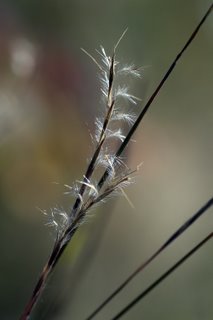
There had been no Damascus Road experience, no blinding light, no thunderbolt realization. If there was conversion it had been of the quiet sort, a slow turning as of a plant toward light. But, unlike a sun-seeking plant, there'd been intent. Or, maybe simply consent -- I had, finally, declined to say no. Which is, of course, (what a strange word for this notorious Bartleby) yes.
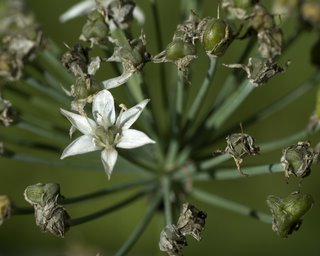
It had been, though, like what Paul had famously written in Corinthians:
When I was a child, I spoke like a child, I thought like a child, I reasoned like a child; when I became an adult, I put an end to childish ways. For now we see into a mirror dimly, but then we will see face to face.
I had, in short, learned to read. I was the blind man in the Gospel whose eyes had been healed. I was, even, Lazarus.
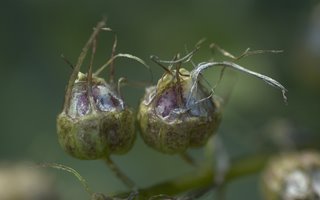
There was, after all, nothing new under the sun. The apostle James, writing to CEOs of multinational corporations, says:
Come now, you rich, weep and wail over your impending miseries.Your wealth has rotted away, your clothes have become moth-eaten,your gold and silver have corroded, and that corrosion will be a testimony against you; it will devour your flesh like a fire. Behold, the wages you withheld from the workers who harvested your fields are crying aloud, and the cries of the harvesters have reached the ears of the Lord of hosts.

The powerful, through hate and fear, still murder to preserve their power. Still use the facade of religion as a prop, as an accessory to power. Still lay up heaps and heaps of riches, delegating the smallest crumbs to the poor and powerless.

Christ is the counterweight. Christ is the Word that utters God and the Word that God utters, the Mystery of Mysteries, the Holy Ground of Being. The scandalously particular Word -- that one Man, in that desert place at that point in history -- that echoes, compassionately, our own scandalous particularity, our own thrownness into this body at this place at this point in time. In the Eucharist, in communion we become part of the Body of Christ. We participate in the unfathomable Mystery of Being, we participate in God.
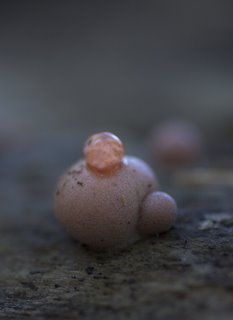
A fragment of Wallace Stevens arose, antiphonal to Hopkins:
The poem of the mind in the act of finding
What will suffice.
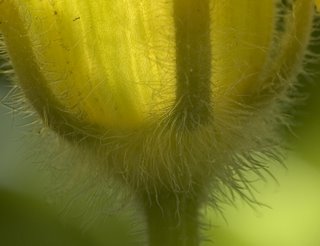
As the sound of the jet faded, I turned back toward the meadow -- sunnier now, almost warm -- and headed toward the woods. It was autumn, winter was approaching, but things were still emerging, opening into the receding sun.
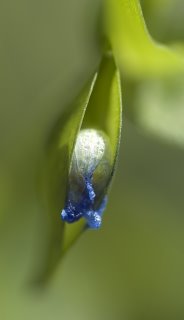
It was late, but, I hoped, not too late.
